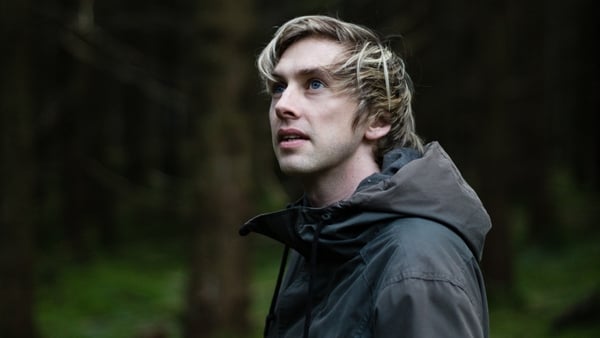Presenter Mark Little introduces Tomorrow Tonight, a new scripted docu-drama set in 2050 and focusing on climate change, the Irish rural economy and a revitalised Amazon rainforest, which airs on RTÉ One this November as part of a series of specials celebrating Science Week 2023.
The last thing I expected when I walked on the set of Tomorrow Tonight was an echo from the past. After all, this was supposed to be a climactic night in 2050 when the future of humanity hung in the balance.
But when I looked at my presenter's desk, I saw two distinctive T’s in the exact font used by RTE’s original flagship current affairs show Today Tonight when it was launched in 1980.
My first reaction was a vivid flashback to my childhood, watching Olivia O’Leary and Brian Farrell on that programme (and wanting to be them some day).
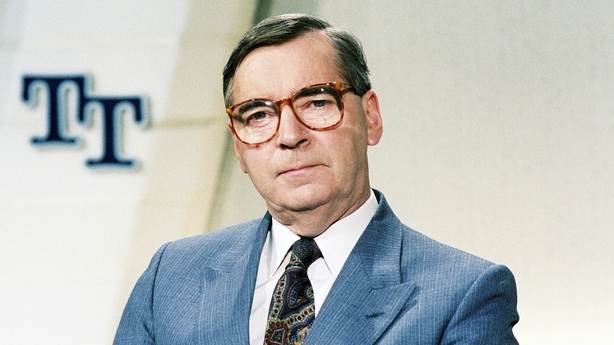
My second thought was that in this seventy year span between 1980 and 2050, climate change will have moved from the distant fringe of our consciousness to dominate every aspect of our lives.
Future generations won’t forgive us the warnings we ignored along the way. I think a lot about Carl Sagan’s powerful words to the US Congress in 1985, and why such vivid testimony about the future failed to land as it should, when we had time.
We need your consent to load this YouTube contentWe use YouTube to manage extra content that can set cookies on your device and collect data about your activity. Please review their details and accept them to load the content.Manage Preferences
Politics and media exist within narrow time horizons. Journalism is drawn to controversy in the here and now. Politicians have a natural bias for living voters over their unborn descendants. Cold, hard scientific fact is no match for the emotional draw of the present-tense.
Artists and writers tend to have better luck shaping our view of the future. Movies capture every generation's worst fears about what’s around the corner. Back in the 80s, I was terrified by films like The Day After and Threads into an obsessional fear of nuclear apocalypse.
But science fiction has a complicated relationship with the human psyche. Feel-good endings run the risk of creating complacency, while outright dystopia can leave us paralyzed by fear, or in the case of Don’t Look Up, disgusted by farce at the end of the world.
Some exceptional writers, like Kim Stanley Robinson in The Ministry of the Future, strike a balance between grounded hope and unavoidable anxiety. But as climate storytelling becomes increasingly persuasive, the more hopeless we seem to become.
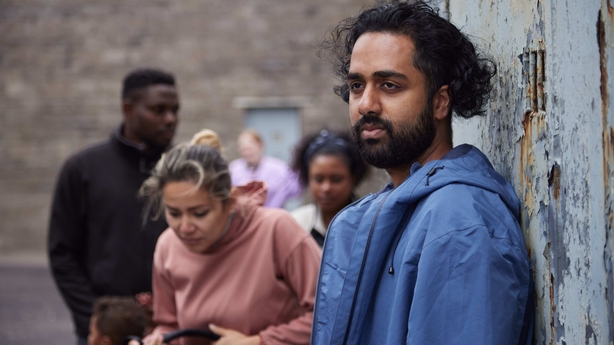
The Lancet found widespread "climate anxiety" among children across the world had an "impact on their daily functioning", and political failure to tackle the climate crisis increased this distress. As extreme weather events become a fact of life, there is evidence of debilitating post-traumatic stress in their wake.
For all our growing awareness of climate fact, we are uncertain of how we meaningfully shape the climate future. Here in Ireland, an ESRI study found that citizens tended to overestimate the impact of some activities, and underestimate the value of others.
Having come into that studio with an echo of the past, I would leave it with an echo of the future.
The talented people who made Tomorrow Tonight wanted to tell a story about the climate crisis that could transcend paralyzing anxiety. By transporting ourselves 27 years into the future, we wanted viewers to land in a world they could recognise as their own. We wanted to make them feel emotionally vested in a version of Ireland that is the sum of the choices we are making today.
It is a world that will be much worse in many ways. There are no good choices left to make in 2050 about problems like climate migration, as 'wet-bulb' heat waves force people to flee their homelands, not in search of better lives but to avoid death. That is why in our 2050 studio, we anxiously wait for a vote on a last-ditch climate rescue package that will lead to intervention by UN 'green helmets and step up prosecution of international climate crime
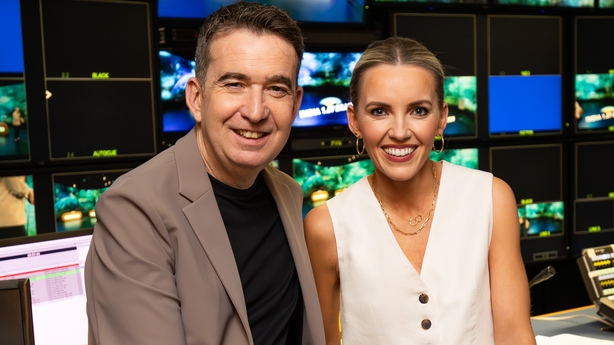
But this is also a world transformed by innovation, thanks to the right policies and the right people. The Amazon rainforest has been returned to the control of the indigenous people who, in partnership with international organizations, have restored the "lungs of the planet" to good health.
Back home - in our 2050 Ireland - we tell the remarkable story of the resilience of Irish farming and its positive impact on the health of our society, with a team of real experts and captivating human stories.
Carla O’Brien takes full advantage of Tomorrow Tonight’s stunning set - and its augmented reality tools - to chart the story of Irish life, changed utterly.
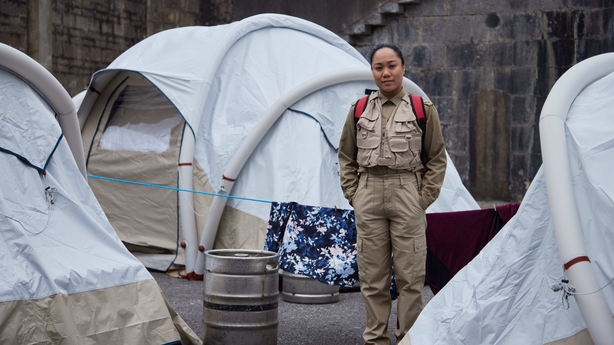
Some plot lines will stretch your imagination. But this is science fiction grounded firmly in scientific fact. Colin Murphy’s scriptwriting skills were complemented by the expertise of Ireland’s leading environmental and energy scientists. Some of the most unlikely lines in the drama are actually based on verbatim transcripts of present day conversations.
I’m not ashamed to say I found myself choked with emotion delivering the closing lines of Tomorrow Tonight. I was overwhelmed by a feeling that I was - for one night only - in the minds of a generation who will never forgive us if we waste these coming decades on division and doubt.
Having come into that studio with an echo of the past, I would leave it with an echo of the future. It’s a sound I will never forget. I hope you hear it too.
We need your consent to load this YouTube contentWe use YouTube to manage extra content that can set cookies on your device and collect data about your activity. Please review their details and accept them to load the content.Manage Preferences
Ireland 2050: Tomorrow Tonight airs on RTÉ 1 at 21.35 on Wednesday 15th November 2023 - catch up afterwards via RTÉ Player.
